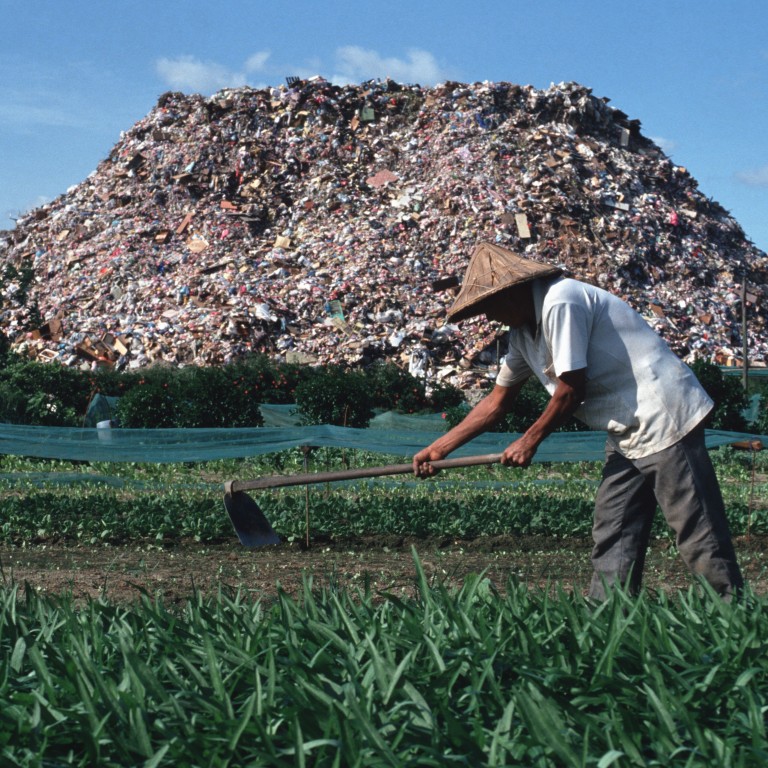
Climate change the new battle for Taiwan’s women environmental activists, who fought for it to shed ‘Garbage Island’ label decades ago
- Taiwan’s Homemakers United Foundation has been raising awareness about environmental issues on the island for more than 30 years
- From artists to entrepreneurs, women in Taiwan are leading the fight against pollution, excessive consumption and climate change
Scientists predict the world is going to experience more frequent natural disasters, including floods, tsunami, droughts, bush fires and hurricanes. These are things environmentalists have long feared and tried to warn the rest of us about.
In Taiwan, a number of women – activists, entrepreneurs, cleaners, carers, volunteers and artists among them – have played a big part in raising awareness of these risks by reminding the population to take responsibility for their impact on the environment.
The Homemakers United Foundation (HUF) was established in 1987 by a group of Taiwanese housewives concerned about pollution and its effect on their families. Taiwan was then nicknamed “Garbage Island” because its landfills were overflowing, creating a huge waste problem.
More than 30 years after its inception, the Homemakers United Foundation is still pushing for green policies. It has published family-friendly books advising people how to reduce household water and electricity consumption. Its leaders and volunteers are still almost exclusively women.
Zheng Xiujuan, a former journalist, is the foundation’s vice-president. Her first encounter with the group was 22 years ago in a community workshop. “I was interested in this foundation because they were all female. Everybody could have a conversation, listen to each other and decide what to do together. If you want to go and take care of your family during work, nobody will judge you,” Zheng says.

The HUF became an unofficial training ground for young women who have gone on to become leaders in Taiwan’s environmental movement. Many of its volunteers have been college students who “graduate” and then start their own environmental groups. This is a huge change from three decades ago, when women had to seek approval from family members before becoming activists.
“It’s easier for young women now to become involved. It is seen as a good thing today,” Zheng says.
The HUF’s most pressing environmental issue is how to best deal with the impact of climate change. “The main task of the HUF in recent years has been to promote the two major citizen actions of reducing food waste and increasing green energy,” Zheng says. “We are hoping that changes, from policy norms to daily life behaviour, can be implemented.”
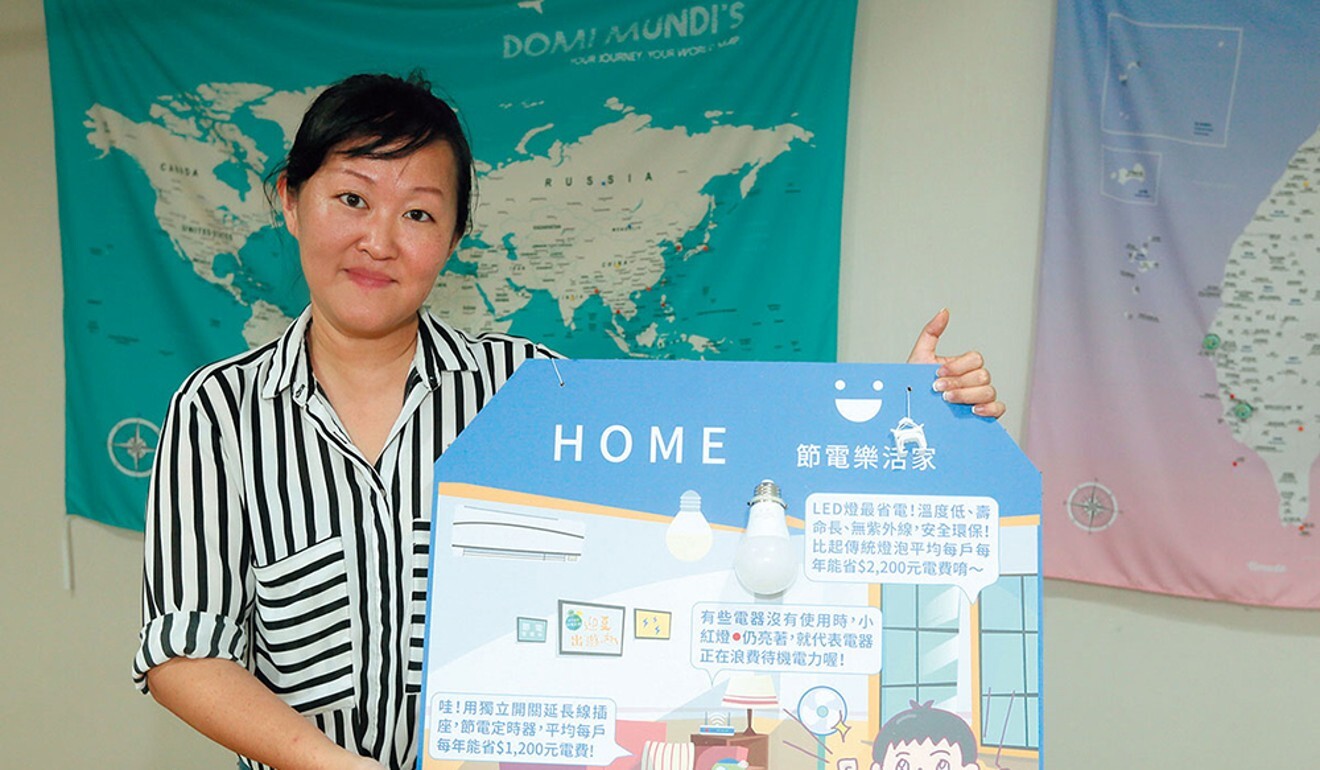
The HUF paved the way for other environmental movements.
Tammy Hu is an entrepreneur who has worked in fashion and public relations for more than 10 years. With her husband, she launched a green social enterprise called DOMI Earth in 2013.
“I was crossing the road, pushing my second baby in a stroller,” she recalls. “And then, just when the traffic light turned from red to green, vehicles started to pass by and fumes started getting in my baby’s face. So I just grabbed the baby and ran to the other side of the road. I was almost in tears because I was choking.”
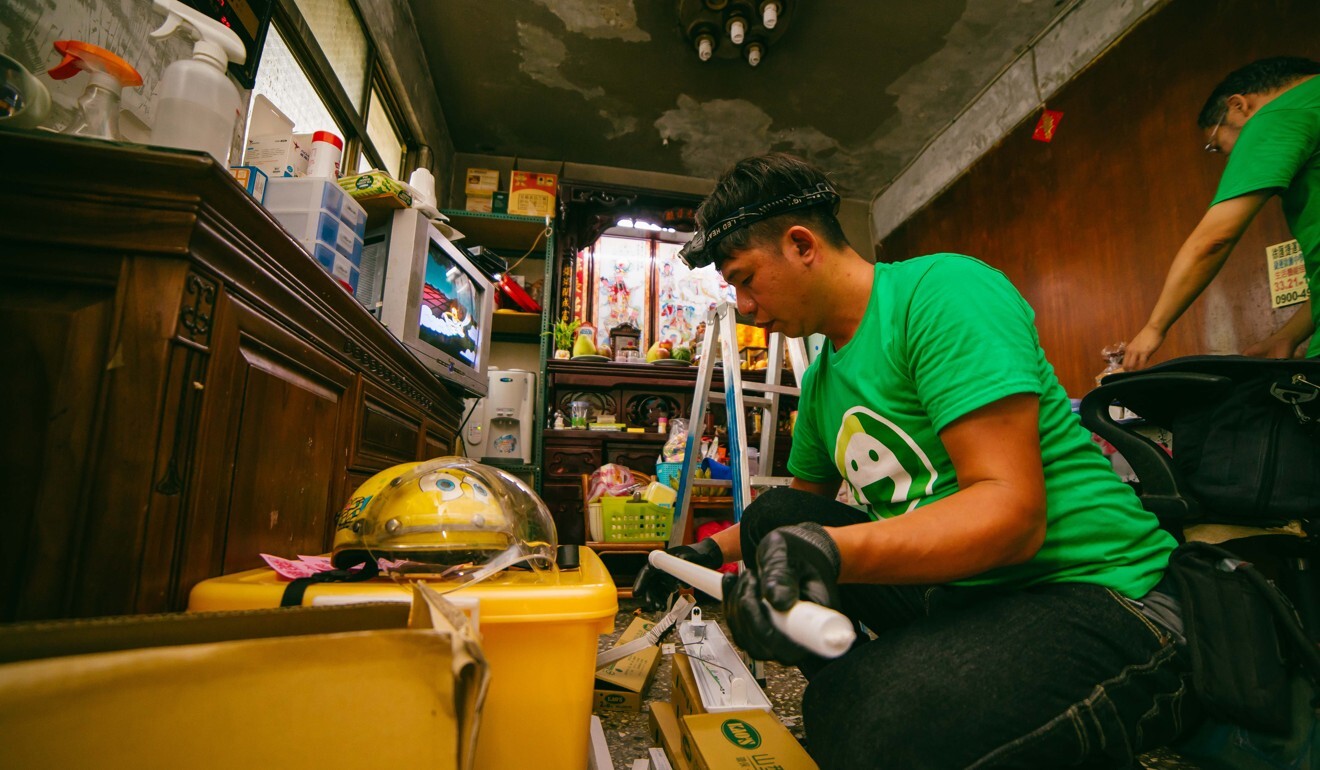
The incident opened Hu’s eyes to the gravity of Taiwan’s air pollution problem and she made up her mind to help fix it with her husband.
“What we are doing today is three things – energy management, energy education and energy justice,” she explains.


Hu says that a study by Taiwan’s Industrial Technology Research Institute in 2017 found that power bills could be cut by as much as 12 per cent if consumers paid more attention to their electricity usage, and she sometimes turns off her air conditioners, rather than running them all the time.
Hu wanted to take the conversation about the importance of the natural environment to families, so she wrote a storybook that parents can read to their children. It features “monsters” that feed on wasted power from appliances such as fridges and air conditioners.
For her part, scholar Ho Wan-li chose the term “eco-familism” rather than “eco-feminism” to describe women’s environmental efforts on the island. “The term eco-familism can be defined as the responsibility of an individual to care for the larger ecological family,” Ho wrote in her book, Ecofamilism: Women, Religion, and Environmental Protection in Taiwan. It explains her theory by referring to religious cultural elements of Buddhism, Confucianism, Taoism and Christianity.
Some scholars may question Ho’s extending of the Confucian ideal of care for humanity to the natural environment. Yet as expert on Asian philosophy Jea Sophia Oh, a US university academic, said in her review of Ho’s book, it is a refreshing take that is different from Western feminist discourses.
“We need to hear more women’s voices, especially non-Western and marginalised voices, aimed at decolonising this planet,” she wrote.
Other Taiwanese women use less conventional methods to draw attention to environmental problems.
Margaret Shiu is a 74-year-old artist and curator who has been living in Taiwan for more than 40 years. Originally from Hong Kong, Shiu used to travel the world working as an economist. In 1976, she settled in Taiwan to become a stay-at-home mother.
Shiu went on to become an accomplished ceramicist and is well known on the island for fighting for the rights of women artists. She started Bamboo Curtain Studio in the late 1990s, which today is a venue for experimental art projects, cultural exchange and cross-disciplinary works.
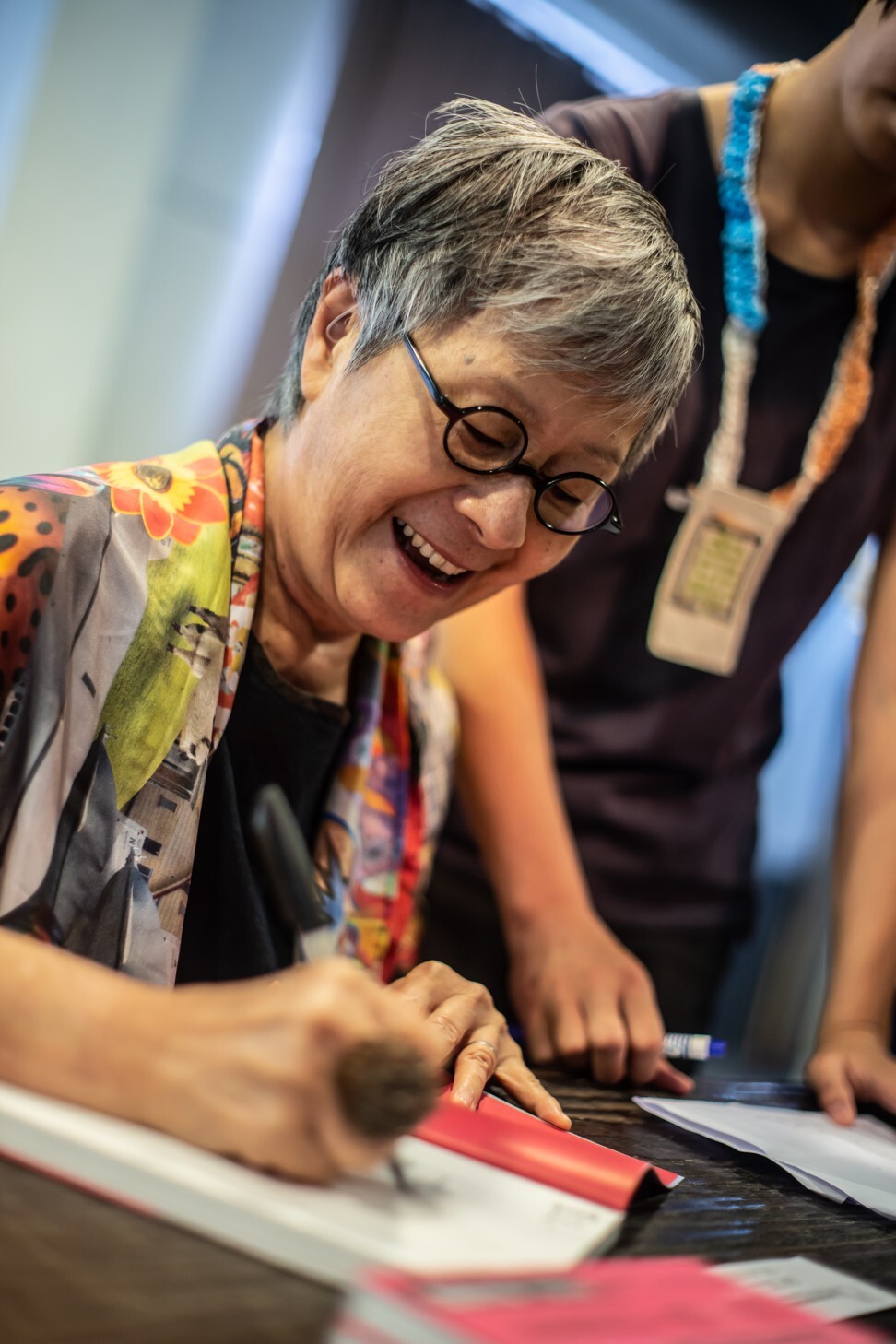
One of the women who has worked with Shiu is Wu Mali, an artist interested in water pollution. Both lived near Plum Tree Creek, which flows into the Tamsui River in northern Taiwan. Locals once used the creek’s water for drinking and farming, but it became polluted over the years due to urbanisation.
“So Wu Mali and I tried to bring awareness to the public and pressure the government by using art and community action,” Shiu says.
They received a grant from the National Culture and Arts Foundation to start an experimental art project, consisting of five programmes designed by five artists. They included a community theatre performance, a tool repair project, and lessons in traditional cooking using wild herbs gathered along the creek.
In another programme, Wu worked with farmers and young artists to host monthly breakfasts, with menus using seasonal ingredients.
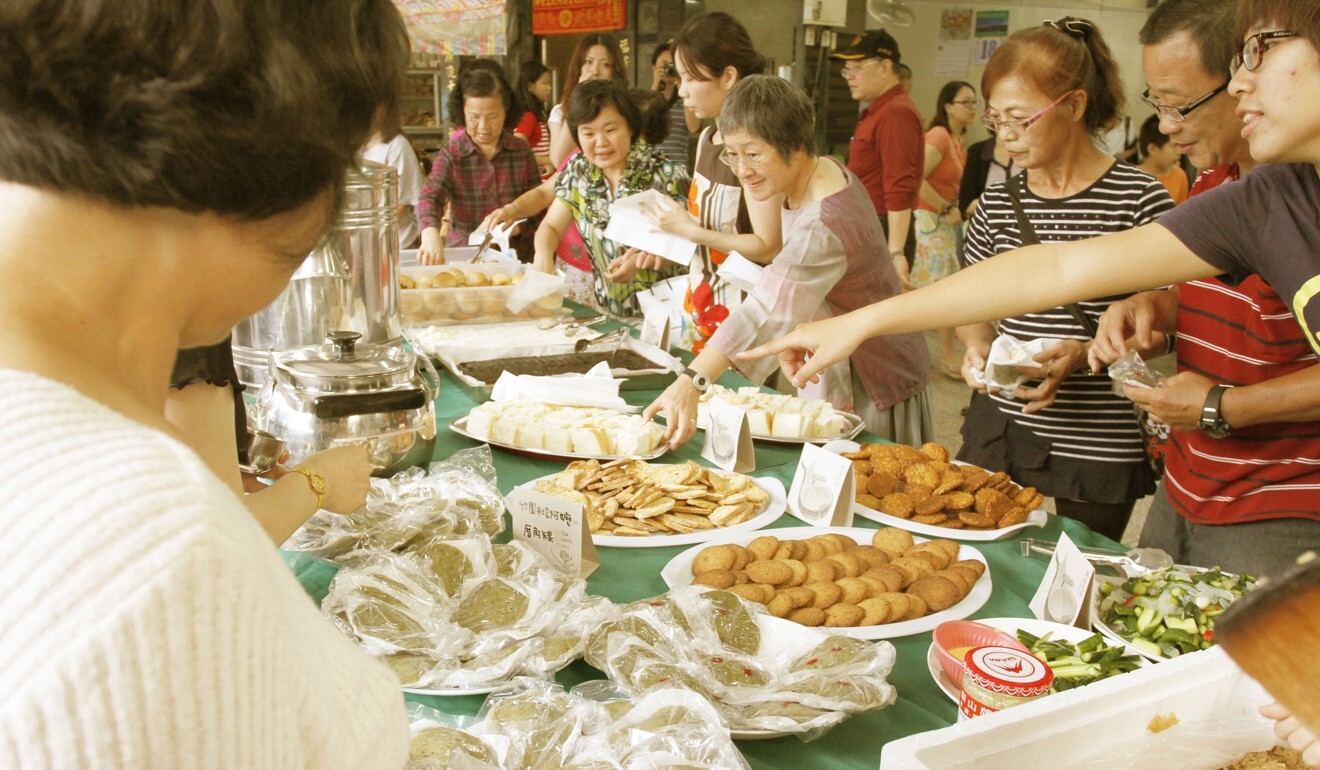
For her own programme, Shiu worked with about 250 primary-school children and artists on presentations about the creek. They could do a performance, dance, play music, write, or other creative projects that could then be shown to parents and local authorities.
The programme became well-known in the community and won the Taishin Arts Award grand prize in 2012. Shiu and Wu used the award money to keep the programme funded.
The community engagement project has been running for almost 10 years, and public interest has encouraged the government to ensure sewage is diverted from the creek, to monitor pig farming higher up the mountain, and find better ways of coping with flooding after rainstorms.
Shiu is satisfied with the results. “We are able to feel art has in the past 10 years been effective in bringing awareness to the community,” she says.

